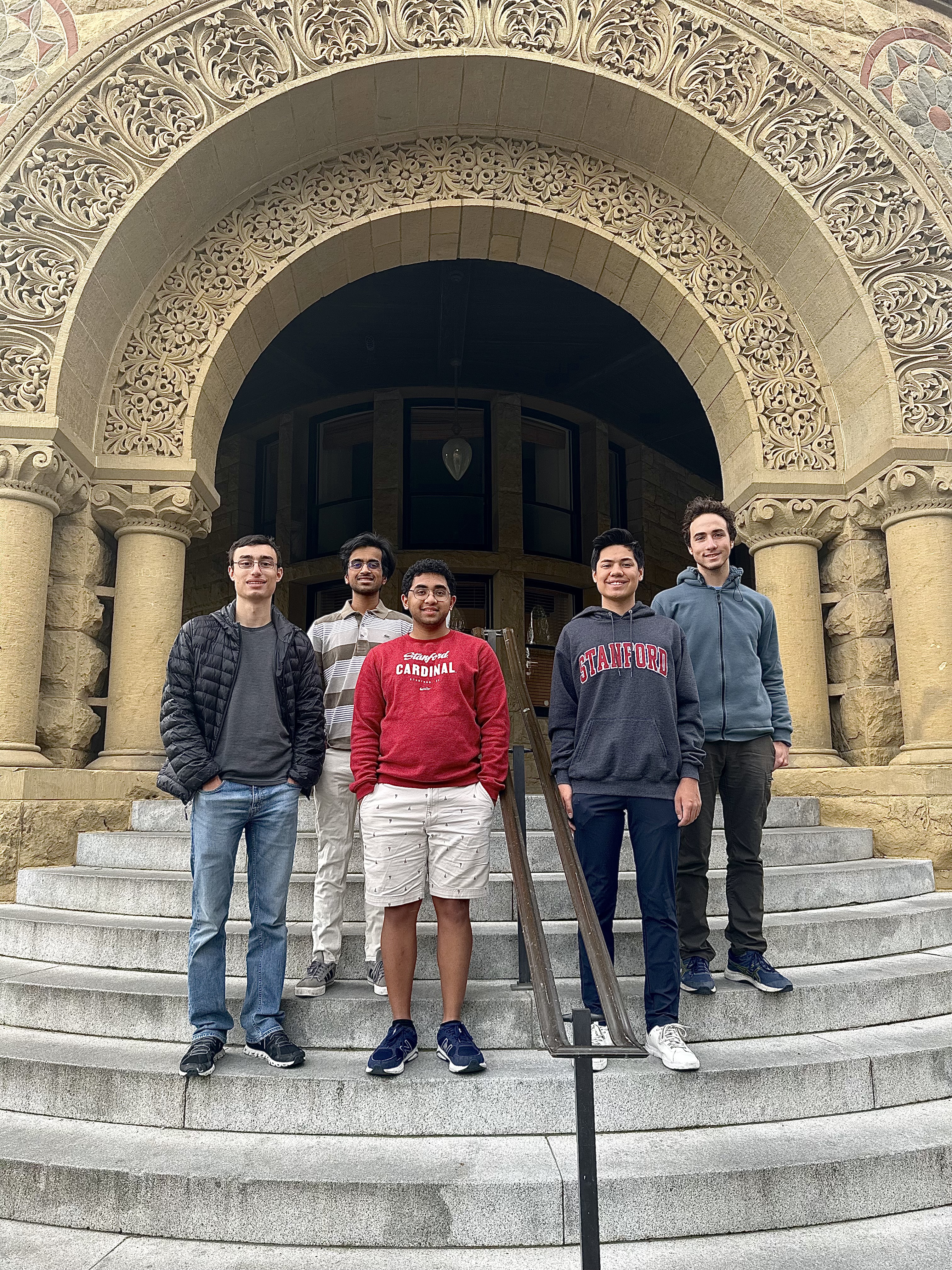On a notoriously difficult, six-hour math test whose median score was one point out of 120, Quanlin Chen ’25 earned an 80.
Chen’s score earned him ninth place and $1,000 in the 83rd William Lowell Putnam Mathematical Competition, a prestigious annual mathematics competition in which 3,415 undergraduate college students from 456 institutions in the United States and Canada competed in 2022.
In results announced on Feb. 13, Stanford’s Putnam team of Chen, Matt Riedman ’24 and Rahul Thomas ’25 came in third place, after teams from Massachusetts Institute of Technology (MIT) and Harvard College, winning $15,000 as a team and $600 each individually. Of 41 Stanford undergraduates who participated in the December 2022 competition, 17 placed in the top 500.
According to mathematics professor Ciprian Manolescu, who teaches the one-unit Putnam-preparation seminar MATH 193: Polya Problem Solving Seminar, this year’s results were among the best in Stanford’s history, tied with results from 2013 and 2019. Manolescu was a three-time Putnam Fellow winner himself — accomplished by placing in the top five among all competitors — when he was an undergraduate at Harvard.
Chen, who grew up in Beijing, China, said he began competing in mathematical competitions in primary school and that the “inertia” of winning led him to competing on the U.S. team in the International Math Olympiad in high school. He said he was surprised to see the 2022 results because he “did not prepare at all” for this year’s competition.
“I find doing math interesting. It’s intellectually satisfactory, and there’s a certain aesthetic beauty in it,” Chen said. “There’s the element of it being a challenge, and in some sense, concrete.”
Eight of the top 10 Putnam scores were from MIT, which has historically dominated the competition. Chen said that he also considered attending MIT, where many of his math-focused peers decided to go, but ultimately chose to come to Stanford for its “exceptionally friendly environment” and because of his other interests in philosophy and literature.
Manolescu said that Stanford’s Math Department receives a list of “math stars” each year from the admissions office, and specifically reaches out to each prospective student to convince them to choose the University. Chen said that when he was choosing between colleges, Stanford mathematics professors sent him “long emails” and met with him virtually.
“Of course, there’s a lot of other factors, but I think they really made me change what I thought,” Chen said. “And yeah, although Stanford doesn’t have a very large math community for undergraduates, nonetheless, this is a world class department.”
Riedman said the Putnam was his first mathematical competition since taking the American Mathematics Competitions and American Invitational Mathematics Examination in high school, though he had loved problem solving “for as long as [he] can remember.”
He said that he would compete in the Putnam again next year.
“I think that doing this sort of thing just really encourages you to think in all sorts of creative ways,” Riedman said. “And that’s a very broadly applicable skill, just thinking about different ways to approach problems to figure out how you can solve them and apply things that you are familiar with, in these new situations.”
